Under the current curriculum, French is a recommended subject for children aged between seven and 11 and only becomes compulsory in the first three years of secondary school.
However, Justin Donovan, who was appointed Director of Education last May, says more emphasis needs to be placed on teaching French at a young age and that he is in the early stages of discussions to change the curriculum to make the subject mandatory in primary schools.
Mr Donovan said that at the moment a only ‘small minority’ of students enter secondary school with a good grasp of French and that he wants to ensure the language is taught several times a week, in line with other subjects such as history and geography.

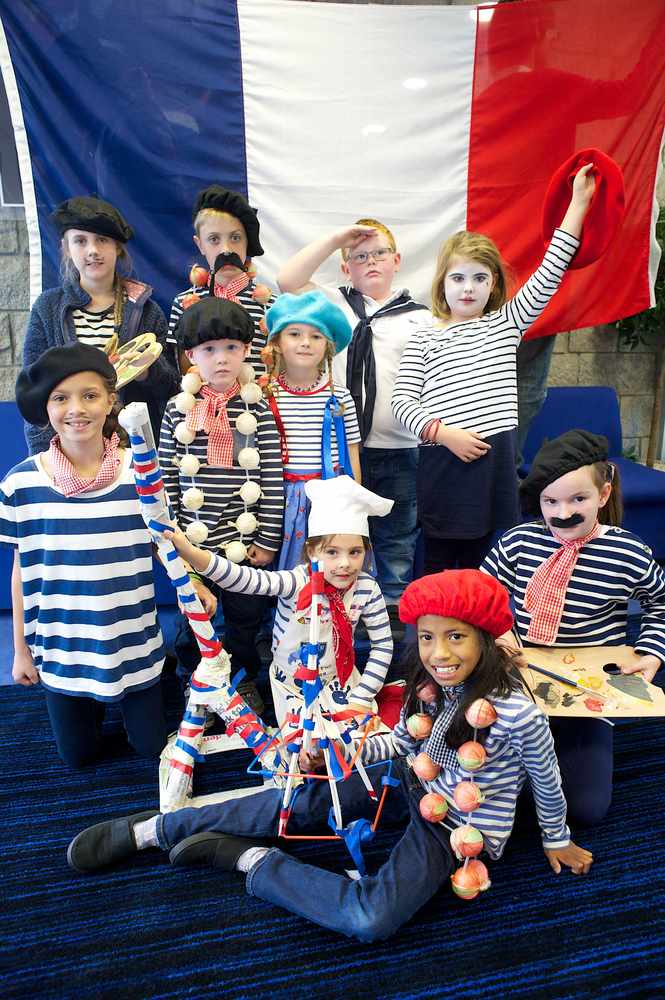
‘It’s really important that children acquire another language and because of the Island’s proximity to France and it’s cultural ties, it’s essential that they are exposed to French at an early age,’ he said.
‘I wouldn’t say that we should be aiming for all children to be bilingual by the age of 11, but I would like for children to arrive at secondary schools with conversational French.’
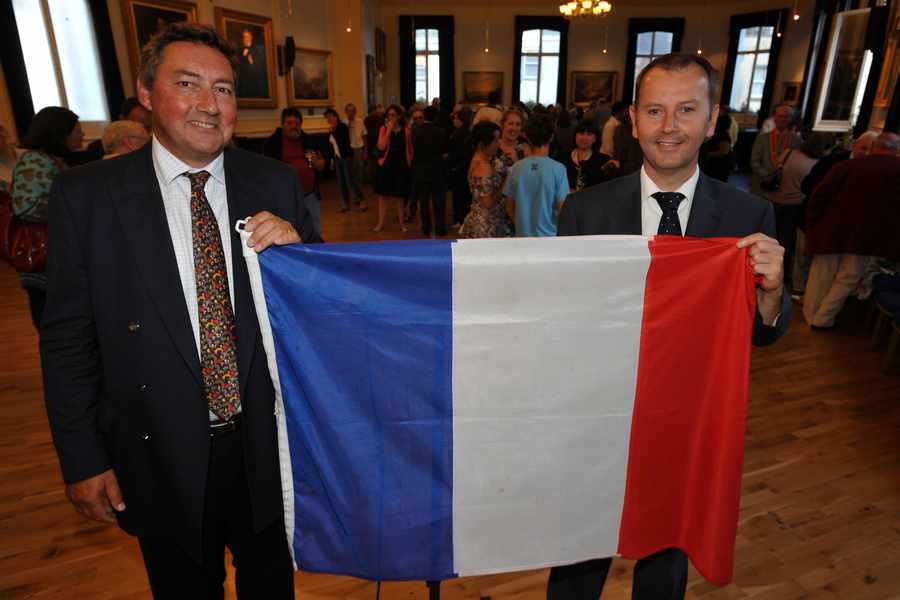
FRANCE’S national day is celebrated every year on 14 July, ‘Le quatorze juillet’.
Mr Donovan added that a number of secondary school teachers had been concerned about the low standard of pupils’ French and that although he had not made any formal decisions, he was discussing the issue with primary school head teachers.
‘Children start secondary school with a strong sense of feeling grown up, but because they don’t have the basic language skills they have to start learning French from scratch and they get really put off because they feel like little children again. They are doing things they should have done in year one which they don’t find very enjoyable.’
He explained that one of the main reasons that schools had been reluctant to offer a more French language centred syllabus was that it required a major change of approach and that many did not currently have teachers with the required skills.
Last month Assistant Education Director Sir Philip Bailhache proposed that a bilingual French school should be introduced on the Island.
Mr Donovan said that he had not ruled out the the idea and that he was due to visit a number of UK bilingual schools next month.
‘We are exploring the idea and we certainly haven’t dismissed the idea,’ he said.
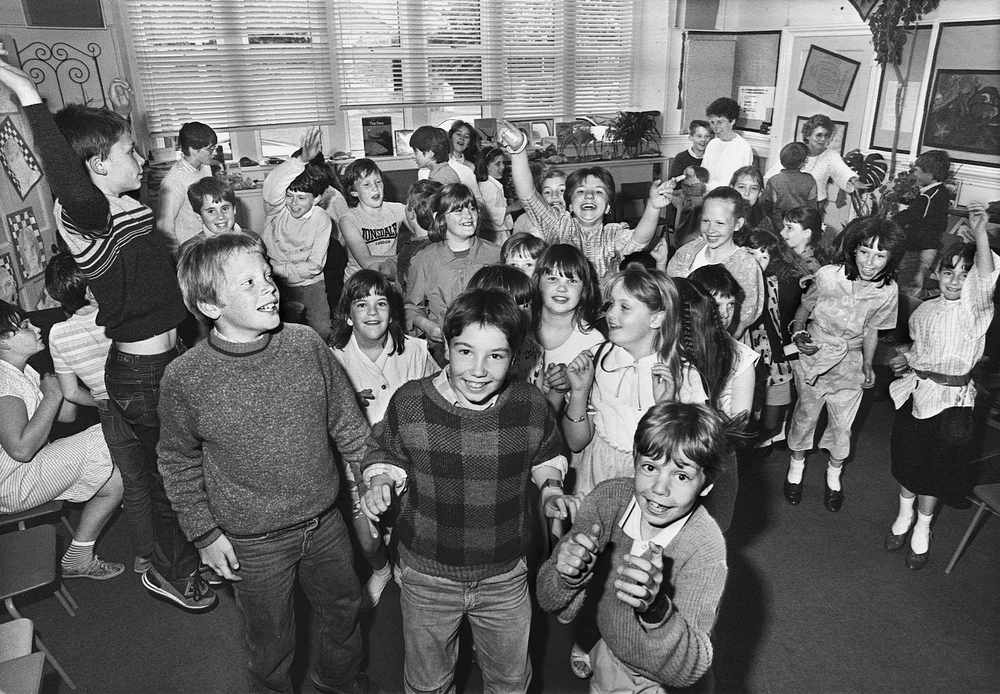
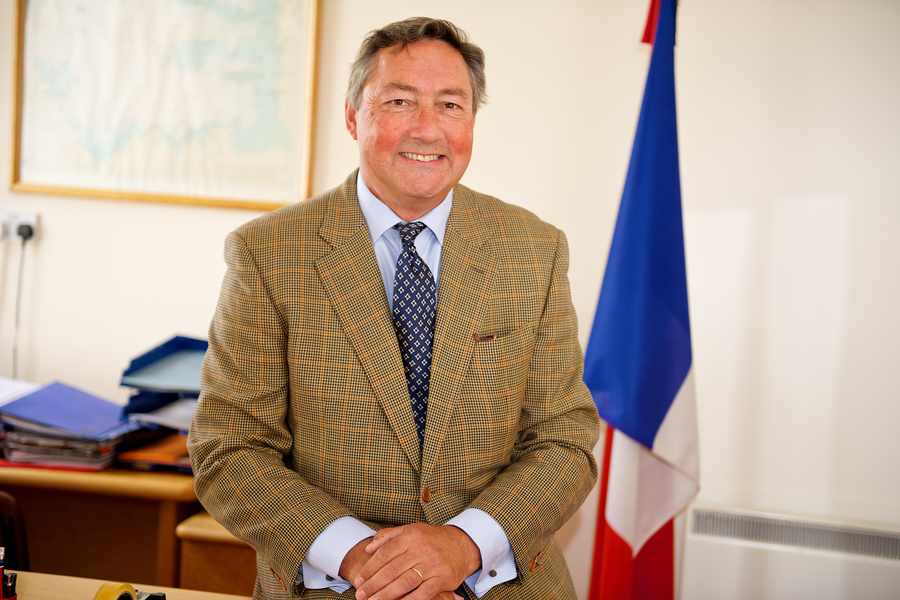
‘France is our neighbour of proximity and that’s not going to change,’ he said.
‘It’s a large part of our cultural heritage, and France is one of the major powers in Europe, and that’s not likely to change in the foreseeable future.
‘The fact that there is so much French culture here, I think we’re just brought up with it and people don’t particularly notice it.
‘It has been with us for centuries and almost a background culture, especially when you think of our laws, our history, family names and our trade links.’
David has been Honorary French Consul since 2008, when he took over from Robin Pallot.
The first responsibility, he says, is to look after the French community in the Island – about 2,000 people – and also French people visiting – as many as 1,000 a day in the summer. The second is representing France in certain matters, organising meetings or attending ceremonies. ‘There are tourism contacts, fishing, sporting and cultural contacts,’ he said. ‘We get French fairs, and five or six naval ships a year. There is quite a lot going on, whether it is socially or culturally and it is very varied.’
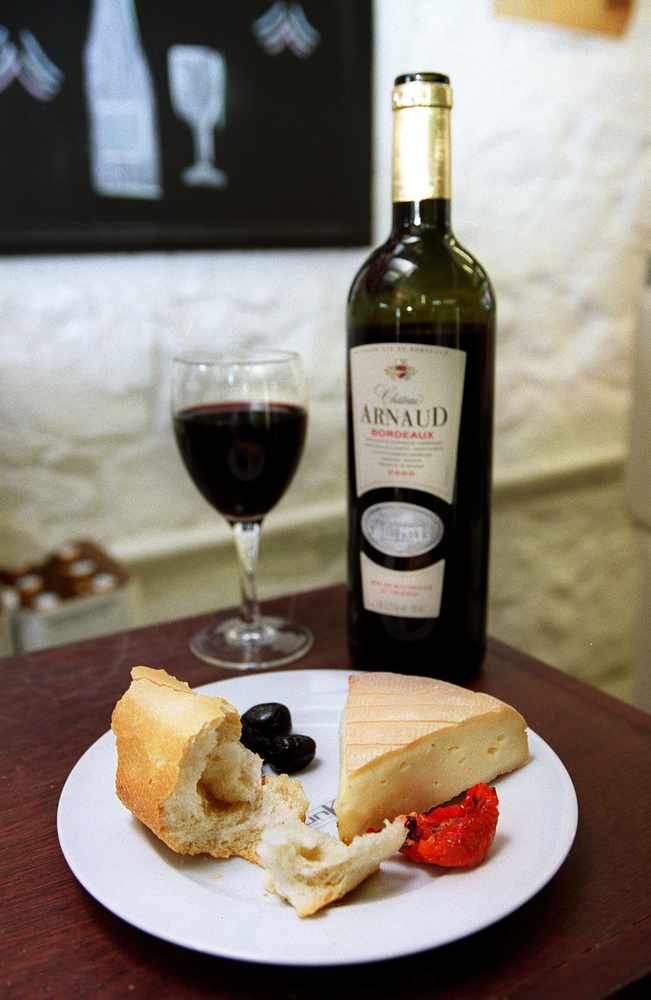
David is also a fan of other things that most francophones and holidaymakers know and love about France – French products, food and drink.
‘The world has become more international but I do think, at the end of the day, that some of the French produce has yet to be beaten,’ he said. ‘There are a lot of things in France that work very well, the transport, for example. The infrastructure is remarkable. ‘And Paris is a very attractive city, you can see the space, the light, the architecture; it’s unique in its own way. And the space and ambience in France generally, created by a large agrarian economy, is very attractive. France has the same population density as England but it’s three times the size. ‘The quality of life and the climate that that invokes is something that’s unique.’

£500,000 pour un studio? Cela semble juste.
£500,000 for a studio apartment? Sounds about right.
Il y a un bateau dans la matinée
There’s a boat in the morning.
Combien?!
HOW much?
Je ne vais pas conduire si loin.
I’m not driving that far.
C’est quoi un clignotant?
What’s an indicator?
Je suis un crapaud de Jersey – pas un bean.
I’m a Jersey crapaud – not a bean.
Les Jersey Royals avaient un meilleur goût quand j’étais plus jeune.
Jersey Royals tasted better when I was younger.
IT makes a huge amount of sense to teach Island school children French from a young age. Links with our nearest neighbours are as strong as ever through tourism and commerce, as well as through cultural and educational exchanges.
But is new Education director Justin Donovan, who wants all 11-year-olds to be able to have a conversation in French, expecting many children to run before they can walk?
He would like to see French taught in all primary schools.
Senator Philip Bailhache, a self-proclaimed Francophile, wants to go a step further and create a bilingual school.
It is no secret that GCSE results in English and maths are poor in some secondary schools when compared with the national average.
Poor results are, in part, a consequence of many children having a limited grasp of English. The question, therefore, is whether, with the department expected to make two per cent savings this year, there is enough money both to help those struggling with the essential core subjects and to realise Mr Donovan’s vision.
We should be aiming to achieve both goals, but focusing on helping children with limited English should be the priority.







